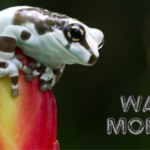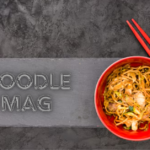Introduction to crossword puzzles and the New York Times
Crossword puzzles have cops in slang nyt long captivated the minds of word enthusiasts and casual solvers alike. The New York Times crossword, in particular, stands out as a daily ritual for many. It offers not just a challenge but also a glimpse into contemporary culture, language, and even subcultures—like that of law enforcement.
Among the many themes woven into these grids is police slang—or “cops” slang as it’s often called. This unique jargon has made its way into clues and answers, adding layers of complexity to an already intricate puzzle. But what does this mean for both constructors crafting these clues and solvers deciphering them? Let’s delve deeper into how cops’ slang appears in NYT crosswords and the conversations surrounding its usage.
The use of police slang in NYT crosswords
Crossword puzzles are a staple of the New York Times, attracting solvers from all walks of life. Among the many themes explored in these puzzles is police slang. This unique lexicon often seeps into clues and answers, adding an intriguing layer to the solving experience.
Terms like “perp” or “narc” pop up frequently, serving as shorthand for complex ideas. For seasoned solvers, these words can evoke a sense of familiarity with law enforcement culture. They help add flavor to otherwise straightforward grids.
Using cops in slang NYT also reflects broader societal narratives. It brings attention to how language evolves within specific communities. Yet it raises questions about representation and sensitivity in puzzle construction—especially given today’s discussions around policing and justice. Such terms may resonate differently depending on personal experiences and perspectives.
As crosswords continue to evolve, so too does their vocabulary. The presence of police slang remains a topic ripe for exploration among constructors and enthusiasts alike.
Examples of common ‘cops’ slang used in crosswords
Crossword enthusiasts often encounter a variety of police slang that adds flavor to their solving experience. Terms like “APB” for “All Points Bulletin” frequently pop up, hinting at urgent calls for assistance.
Another common entry is “COP,” which can refer not just to the officers but also serve as shorthand in clues related to law enforcement activities.
Then there’s “5-0”, a playful nod used by many solvers, evoking both nostalgia and street culture. It’s recognized across popular media and easily fits into various crossword contexts.
“Beat” refers to the area patrolled by an officer. This term might seem straightforward, yet it brings depth to clues involving local neighborhoods or crime stories. Each of these terms enriches puzzles while inviting solvers into the complex world of policing language.
The controversy surrounding the use of police language in puzzles
The inclusion of police slang in crossword puzzles has sparked considerable debate. Some solvers argue that these terms reflect a dated and narrow perspective on law enforcement.
Critics feel that using language associated with policing can perpetuate stereotypes, especially in light of ongoing discussions about systemic justice issues. They question the appropriateness of celebrating or trivializing such terminology within a game meant for entertainment.
On the other hand, supporters believe these terms are simply part of the rich tapestry of urban vernacular. To them, including ‘cops’ slang adds flavor to puzzles and reflects real-life experiences.
Many constructors also face pressure to balance authenticity with sensitivity. As cultural awareness evolves, so does the conversation around which words belong—and which do not—in our daily pastimes like crosswords. The landscape is changing rapidly, forcing everyone to reconsider their choices carefully.
Opinions from constructors and solvers on the inclusion of ‘cops’ slang in puzzles
Crossword constructors often debate the role of police slang in their puzzles. Some argue it adds authenticity and reflects real-world language. They believe that including terms like “cop” or “beat” brings a layer of depth.
On the other hand, solvers have mixed feelings. Many enjoy the challenge but find certain slang terms obscure or outdated. To some, these words can feel alienating, especially if they don’t relate to law enforcement culture.
Feedback from forums shows varied opinions. Some appreciate learning new lingo; others prefer clues that resonate with broader experiences.
The conversation continues to evolve as new voices enter the crossword community. There’s an ongoing dialogue about representation and relevance in puzzle-making today. As more diverse perspectives emerge, so do fresh ideas for clues and answers that engage everyone equally.
Alternative clues for commonly used ‘cops’ slang words
Crossword puzzles thrive on wordplay and clever clues. When it comes to ‘cops’ slang, finding alternative clues can enhance the experience for both constructors and solvers.
For example, instead of using “cop” as a clue for “fuzz,” one might opt for “five-oh.” This term has a playful ring that adds character to the puzzle.
Another common term is “narcs.” Instead of directly stating it, consider framing it with something like, “They may blow your cover.”
Using diverse references can make solving more engaging. A clue hinting at “beat” could read as “Neighborhood patrol area.”
By crafting these alternative clues, not only do we keep things fresh but also invite curiosity about police jargon beyond its traditional context. It’s all about making every square count!
Conclusion: Should ‘cops’ slang continue to be used in
The use of ‘cops’ slang in NYT crosswords raises interesting questions about language and context. On one hand, including police terminology can add a layer of authenticity to the puzzles while also appealing to those familiar with law enforcement culture. It may even serve as an engaging aspect for solvers who enjoy decoding specialized jargon.
On the other hand, there’s valid concern regarding the implications of normalizing police language within a widely respected platform like The New York Times. As societal attitudes towards policing evolve, so too should our approach to language that reflects these changes.
Crossword constructors and solvers alike have differing views on this topic. Some appreciate the challenge and connection to real-world vernacular, while others argue that it perpetuates stereotypes or overlooks broader societal issues linked to law enforcement practices.
Alternatives exist for many commonly used terms—creativity can flourish when constructing clues without relying solely on police slang. This opens doors for fresh perspectives and themes that resonate more positively with today’s audience.
Whether ‘cops’ slang belongs in crossword puzzles is a nuanced discussion worth having as we navigate evolving cultural sensitivities surrounding policing language. Balancing tradition with modern values might just be the key to keeping crossword enthusiasts engaged while fostering thoughtful dialogue around this pertinent issue.
FAQs
What does ‘Cops’ mean in NYT crossword slang?
In NYT crosswords, ‘Cops’ often refers to slang terms or abbreviations related to law enforcement, used to fit crossword puzzle clues.
Why are slang terms like ‘Cops’ used in NYT crosswords?
Slang terms add variety and challenge to crossword puzzles, making them more engaging and testing the solver’s knowledge of contemporary language.
How can I better understand slang clues in NYT crosswords?
Familiarize yourself with common slang and abbreviations, and practice solving puzzles to improve your understanding of how these terms are used in clues.
Are there specific strategies for solving slang clues in NYT crosswords?
Look for contextual hints within the crossword and consider popular slang terms related to the clue. Cross-referencing with other clues can also help.
Can ‘Cops’ slang terms vary in different crossword puzzles?
Yes, slang terms like ‘Cops’ can vary in meaning and usage across different crossword puzzles, but NYT puzzles often use standard or widely recognized slang.







